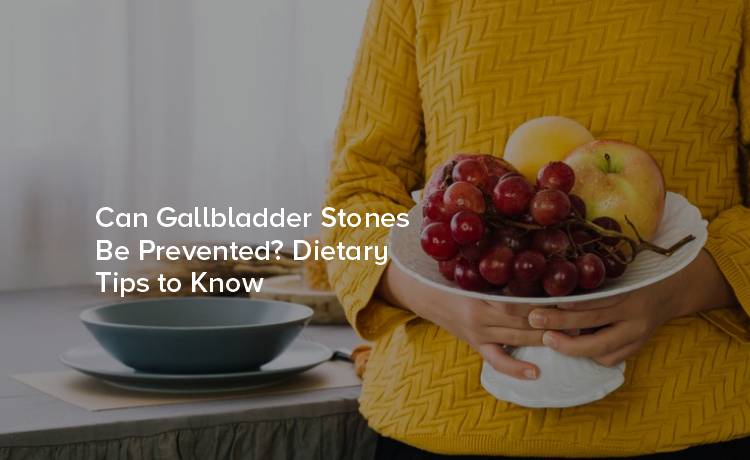
Gallbladder stones, or gallstones, are a common health concern that can cause significant pain and discomfort if left unmanaged. While they often go unnoticed in their early stages, gallstones can lead to complications if they grow larger or block bile ducts. The good news? While not all gallstones can be prevented, certain lifestyle and dietary habits can significantly reduce your risk of developing them.
Gallstones are hardened deposits of digestive fluid, primarily cholesterol, that form in your gallbladder—an essential organ that stores bile used for digestion. These stones can be as small as a grain of sand or as large as a golf ball.
Gallstones typically form when:
Who Is at Risk?
Certain individuals are more prone to developing gallstones due to risk factors such as:
Now that you understand the causes, let's focus on how dietary choices can make a difference.
Gallstone prevention begins with a well-rounded diet and healthy eating habits. Below are dietary strategies to reduce your risk of developing gallstones.
Fiber plays a pivotal role in digestive health and gallstone prevention. It helps regulate the digestive process and prevents cholesterol from solidifying into stones.
Fill Your Plate With:
Bonus tip: Gradually increase your fiber intake to avoid digestive upset and drink plenty of water to support your digestive system.
2. Limit Saturated Fats and Opt for Healthy FatsA diet high in saturated fats encourages the overproduction of cholesterol, a main ingredient in most gallstones. Replace unhealthy fats with sources of "good" fats to safeguard your gallbladder.
Focus On:
Avoid excessive consumption of fried foods, processed snacks, and fatty cuts of meat that can increase your cholesterol levels.
Managing your weight can reduce your risk of gallstones, but slow and steady weight loss is key. Rapid weight loss (over three pounds per week) can disrupt bile composition and lead to gallstone formation.
Recommendations:
Eating regular meals is essential for maintaining healthy gallbladder function. When you skip meals, bile sits in the gallbladder longer and becomes more concentrated, increasing the risk of stone formation.
How to Stay on Track:
Refined carbohydrates and added sugars can impact cholesterol levels and contribute to gallstone formation. Your goal should be to minimize processed and sugary foods.
Cut Back On:
Instead, opt for natural sweeteners in moderation, such as honey or maple syrup, and replace white flour with whole wheat alternatives.
Proper hydration supports bile production and aids digestion. Dehydration, on the other hand, can lead to bile thickening, which creates the perfect environment for gallstone formation.
Tips for Staying Hydrated:
Surprisingly, moderate caffeine intake may help reduce gallstone risk. Coffee stimulates bile flow, which can prevent gallstones from forming.
What to Keep in Mind:
While diet plays a significant role in gallstone prevention, pairing healthy eating patterns with specific lifestyle habits can further reduce your risk.
Not all gallstones can be avoided, even with the healthiest habits in place. Watch out for symptoms like:
If you suspect gallstones or experience these symptoms, consult a healthcare provider for a proper diagnosis and treatment plan.
Gallstones may be common, but they're far from inevitable. With the right dietary choices and lifestyle habits, you can significantly lower your chances of developing them and enjoy all the benefits of a healthy digestive system.